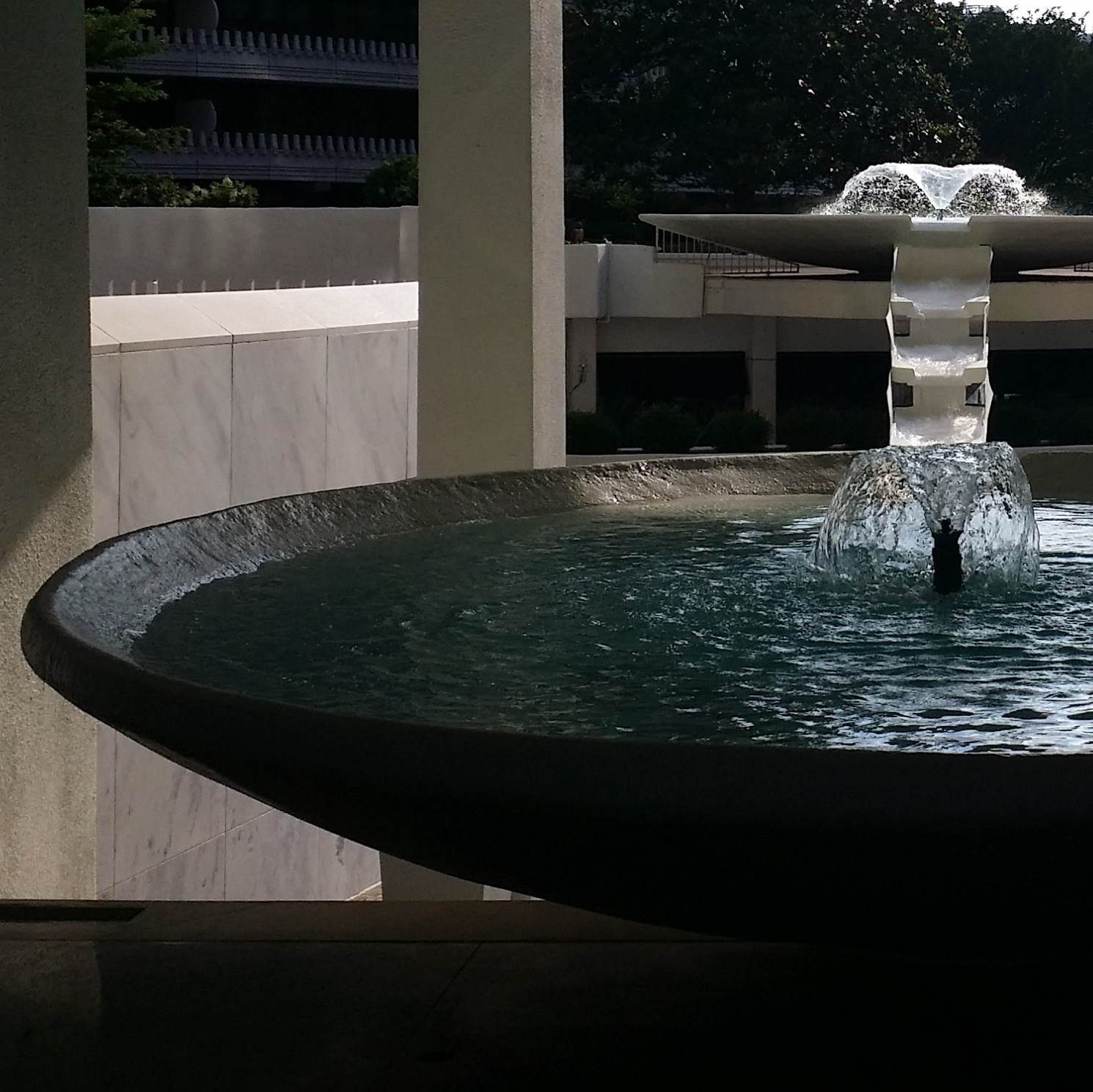We Made the World We’re Living In, and We Have to Make It Over by Natasha B. '16
Envisioning alternative futures
Yesterday, Friday, was my third day working at the Atlantic. I graduated a little over a month ago, moved to Washington, D.C. a week ago, and started the fellowship on Wednesday. The city is lush, green, unfamiliar. The air is heavy with humidity and heads and hearts, this week, are heavier.
I spent yesterday in a newsroom, with the weight and force of recent murders in Minneapolis, Baton Rouge, and Dallas rushing in torrents. I spent the day scanning news sources for updates, any updates, and updating the CityLab article accordingly. I was forced not to look away. At four thirty in the afternoon, I needed to. News was not breaking so quickly anymore. I stepped away.
I wrote:
Standing in the lower courtyard of the Watergate building beneath a white ledge textured with cracks and mineral deposits from the constant dripping of water–miniature stalactites the color of salt–before a rippling turquoise pool in white concrete basin. I have been on Dallas all day. My throat is dry and hollow. I am afraid for people I love. I am afraid for all of us. I want the black and brown people I love to feel safe and beloved in their skin. We live in a dystopia. Envisioning alternative worlds, alternative futures–radical reenvisioning is the only way forward I see. Where can we go for healing and peace?
Can a civilization be healed? Can damage to hateful souls–the rot that creeps in–be undone? Not by fear.
The humidity turns this courtyard into a jungle. I am wearing green silk pants and the hem has fallen.

We live in a wounded and divided country, in a fragile state. Families and communities are torn apart by unlawful executions, deportations, the criminalization of survival. Black and brown bodies are torn apart by bullets their taxes paid for. Our humanity is torn apart as we witness this and do nothing, change nothing, deny, grow desensitized to the brutality. It is not enough to change the practices of police. We must change ourselves, our ways of being, and our country. We must be brave enough, imaginative enough, and compassionate enough to envision a world in which blackness is not feared and lives are valued. How to begin?
Without having anything whatever against Cadillacs, refrigerators and all the paraphernelia of American life, I yet suspect there is something much more important and much more real which produces the Cadillac, refrigerator, atom bomb, and what produces is, after all, is something which we don’t seem to want to look at, and that is the person. A country is only as good–I don’t care now about the Constitution and the laws, at the moment let us leave these things aside–a country is only as strong as the people who make it up and the country turns into what the people want it to become. Now, this country is going to be transformed. It will not be transformed by an act of God, but by all of us, by you and me. I don’t believe any longer that we can afford to say that it is entirely out of our hands. We made the world we’re living in and we have to make it over.
James Baldwin, Nobody Knows My Name
People who are exhausted and afraid, I am with you. People who are grasping at straws, trying to understand, trying to find what to do, I am with you.
______
Resources:
Michelle Alexander on Transformative Change
Self Care for People of Color After Psychological Trauma (and Other References)